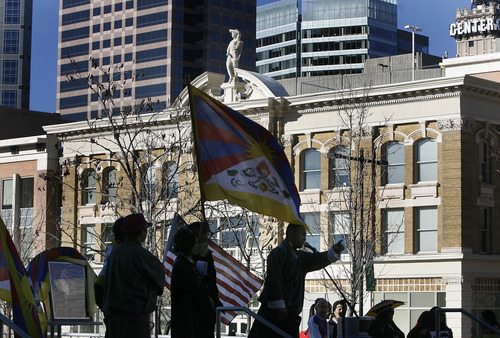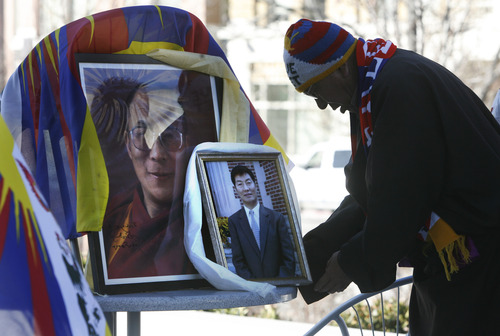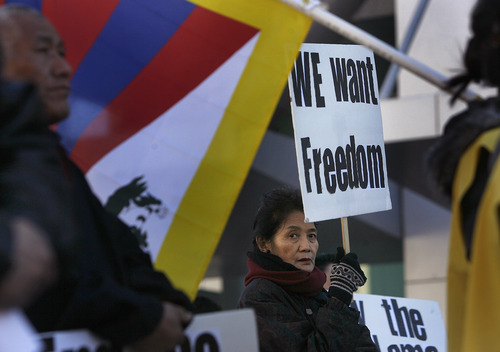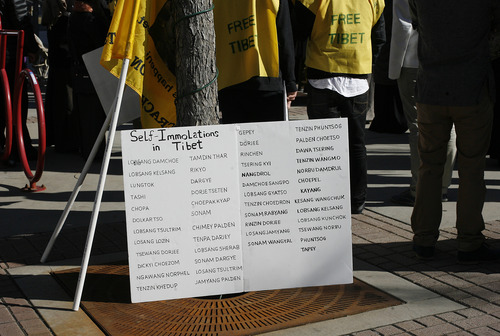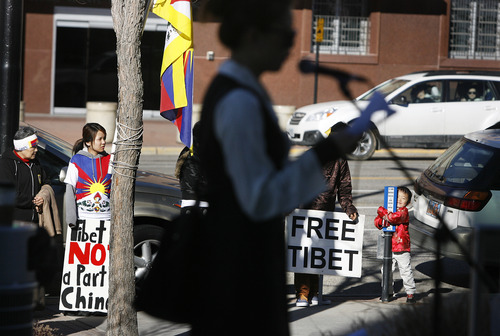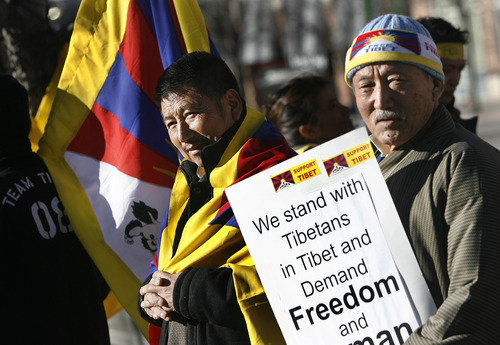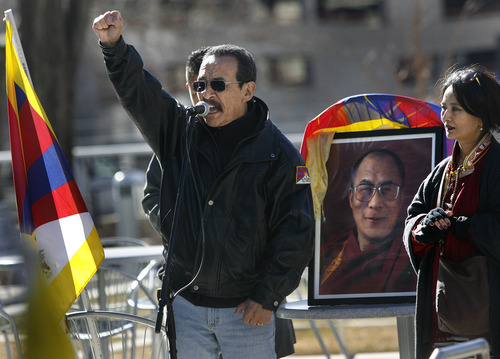This is an archived article that was published on sltrib.com in 2013, and information in the article may be outdated. It is provided only for personal research purposes and may not be reprinted.
Standing in chilly downtown Salt Lake City on Sunday morning, Tibetan activist and author Jamyang Norbu chanted to an eager crowd.
"Rangzen!" (Independence) "Rangzen!" "Bhod Gyalo!" (Victory to Tibet) "Bhod Gyalo!" he shouted, his fist rising to the sky. The defiant chants were greeted by about 100 supporters gathered in front of the marble steps of the Wallace F. Bennett Federal Building on State Street to protest human-rights violations of Tibetans by the Chinese government.
A peace march to the Salt Lake City-County government building followed. Sunday was the 54th anniversary of National Tibetan Uprising Day, commemorating the day in 1959 when tens of thousands of Tibetans rose up against China's occupation of their Himalayan nation.
"Our day is coming," Norbu told the crowd. "When we gather, we do it out of duty and celebration."
According to the activist group Rangzen Alliance, about 1.2 million Tibetans have been killed since 1956 from either fighting the occupation, labor camps or from famine.
"Most people know about Tibet, but they don't understand the whole issue and that Tibet was an independent country," said Zangma Tenzin, of the Utah Students for a Free Tibet. "Tibetans are so frustrated because there is so much going on in Tibet — torture and killing — and it's never covered in the news."
The crowd also was there to remember the 107 Tibetans who have set themselves on fire since 2009 across China, Nepal, India and Tibet to protest China's actions. The self-immolations, nearly all of them fatal, began with Buddhist monks but have since spread to other walks of Tibetan society, including teenagers.
Chinese authorities say outside forces have helped instigate the incidents, including the Dalai Lama, the exiled spiritual leader of Tibetans — a charge his supporters adamantly deny.
"It's a new wave of protests for basic human rights such as the freedom to practice religion and culture and to speak Tibetan," said Pema Chagzoetsang, president of the Utah Tibetan Association, which she says has about 200 members. "They're being charged for nothing."
Donning yellow "Free Tibet" jerseys and hoisting signs that read, "Allow the Dalai Lama in Tibet" and "Tibetans Dying for Freedom," supporters included Tibetan natives living in Utah and non-Tibetans.
"The fact is Tibetans are doing a wonderful job of keeping the language and culture going," former Westminster College political science professor Chuck Tripp told the crowd. "It's all about language and culture and maintaining cultural rights."
In many ways, it's been more difficult to alert Americans about the plight of Tibetans from Chinese rule, he said — especially when the U.S. economy has become so dependent on Chinese labor for products such as iPhones and iPads.
"People don't want to hear that anymore," Tripp said after his speech. "They look at what they buy and they just shrug."
"This issue not only affects Tibetans," said Tenzin, 30, a student at the University of Utah. "When we buy Chinese products, we are saying we accept what the Chinese government is doing. As a consumer, we have the power."
But in Norbu's speech, he said there is hope for all Tibetans.
"Our country will be free," he said. "All those people who died, we will remember."


